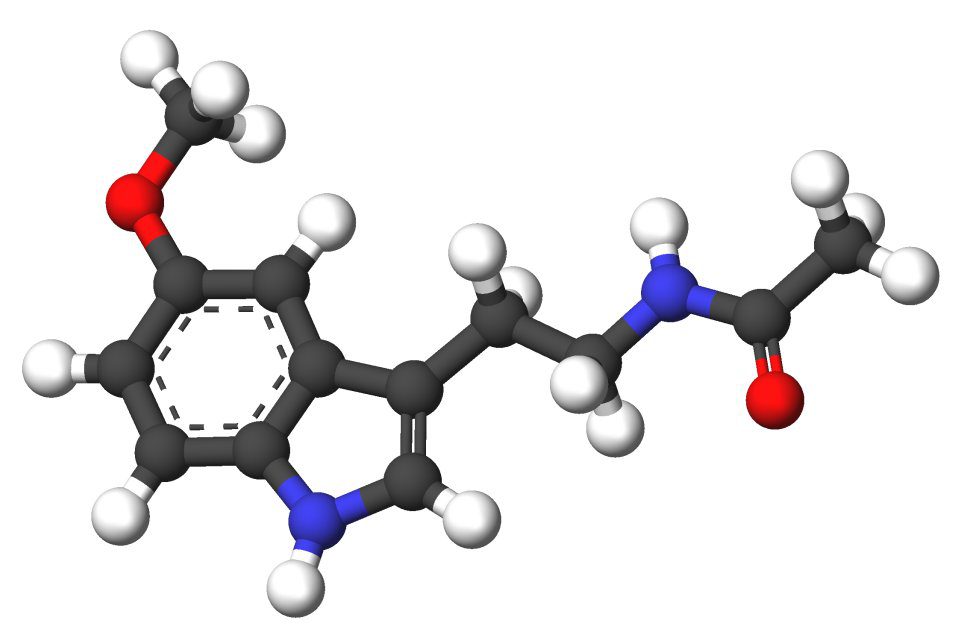Long-Term Melatonin Use Linked to Higher Heart Risks
New preliminary research from over 130,000 adults reveals potential cardiovascular concerns with chronic melatonin supplementation for insomnia

Taking melatonin for long periods of time could be a sign of underlying heart problems. Long-term use of the popular over-the-counter sleep aid has been linked to a higher risk of heart failure and early death in adults with insomnia, according to research released Monday by the American Heart Association.
There’s no evidence that melatonin supplements themselves cause heart problems, the researchers said. But a need to take them on a regular basis to help with falling and staying asleep could be a signal that the body is experiencing cardiac issues. “Insomnia can increase blood pressure, stress hormones and inflammation,” said Dr. Ekenedilichukwu Nnadi, lead author of the new study and an internal medicine resident at SUNY Downstate/Kings County Primary Care in New York City.
A review of 5 years of health records for more than 130,000 adults with insomnia who had used melatonin for at least a year found they were more likely to be diagnosed with heart failure, require hospitalization for the condition or die from any cause. The association between melatonin and increased risk of heart failure or death found in this study, which cannot prove a cause-and-effect relationship, raises safety concerns about the use of melatonin, which is widely available, and may warrant more research on melatonin to assess its cardiovascular safety.
Nnadi and colleagues looked at five years of electronic health records from 130,828 adults, average age 56, finding that people who took melatonin regularly for at least a year were nearly twice as likely to develop heart failure compared to those who didn’t use the supplement, though the actual rates were relatively low: 4.6% of people in the melatonin group developed heart failure, compared to 2.7% among those who didn’t take melatonin.
They were more than three times as likely to be hospitalized for the condition (19% versus 6.6%), and nearly twice as likely to die during the study period, compared to people who didn’t take melatonin regularly. The research is scheduled to be presented at the American Heart Association’s Scientific Sessions 2025 in New Orleans and has not been published in a peer-reviewed journal.
Study Overview: Understanding the Research
Researchers analyzed data from the TriNetX Global Research Network, an international database of de-identified patient records, to examine the relationship between long-term melatonin use and cardiovascular health outcomes in adults with chronic insomnia.
It’s unclear, however, whether the data captured outcomes of all people in the U.S. who take melatonin long term. Researchers identified people as chronic users of melatonin based on medical records only — that is, if they’d been prescribed the supplement. In the U.S., the supplement is available over the counter and isn’t often reflected in medical records.
“I caution people against drawing concrete conclusions based on this study alone,” said Dr. Nishant Shah, a preventive cardiologist at Duke University Medical Center in Durham, North Carolina, who wasn’t involved with the study. “But now that we have this observation, this is prime time to figure out whether there’s actually a direct association of harm with sleep agents. That would be practice-changing.”
Risk Comparison: Melatonin Users vs Non-Users
Over the 5-year study period, adults with insomnia who used melatonin long-term showed significantly higher rates of cardiovascular complications compared to matched non-users with similar health profiles.
Long-Term Melatonin Users
Non-Users
⚡ Long-term melatonin users showed approximately 90% higher chance of heart failure diagnosis over 5 years
Heart failure occurs when the heart can’t pump enough oxygen-rich blood to the body’s organs for them to function properly. Nearly 7 million Americans have the condition, according to the Centers for Disease Control and Prevention.
While the study found that long-term melatonin use was an indicator of potential heart problems — and not causing the problems itself — experts agreed more research is needed into the supplements’ possible side effects. “We have patients using all kinds of supplements without understanding the risks,” said Dr. Martha Gulati, a preventive cardiologist and the incoming director of the Davis Women’s Heart Center at Houston Methodist DeBakey Heart and Vascular Institute in Texas. “If there is harm from a supplement, it means the cost could be far more than simply expensive urine.” Gulati was not involved with the new study.
Research Methodology
The study employed rigorous matching criteria to compare long-term melatonin users with non-users who had similar health profiles, demographics, and risk factors.
Melatonin is a hormone made naturally by the body that helps regulate sleep and wake cycles. Synthetic versions, sold widely over the counter as dietary supplements, are marketed to help people fall asleep faster or overcome jet lag. Because supplements aren’t regulated by the Food and Drug Administration, doses and purity can vary widely among brands.
Use of the supplement has increased in recent years. A 2022 Sleep Foundation survey found that up to 27% of U.S. adults take melatonin, as well as 4% of kids. The new study didn’t include children. People taking melatonin for sleep for more than a year should talk with their doctor, experts said.
Melatonin supplements may not be as harmless as commonly assumed. If our study is confirmed, this could affect how doctors counsel patients about sleep aids.
- This study shows association, not causation. The research cannot prove that melatonin directly causes heart failure. More research is needed to test melatonin’s safety for the heart.
- The findings are preliminary and not peer-reviewed. This research was presented as an abstract at the American Heart Association’s Scientific Sessions 2025 and has not been published as a full manuscript in a peer-reviewed journal.
- Insomnia itself may increase cardiovascular risk. Insomnia can increase blood pressure, stress hormones, and inflammation, which could contribute to heart problems independent of melatonin use.
- Over-the-counter use may be underreported. The study tracked melatonin through medical records. Everyone taking it as an over-the-counter supplement in the U.S. or other countries without prescriptions would have been classified as non-users, potentially affecting results.
- Missing data on severity and mental health. The researchers lacked information on the severity of insomnia and the presence of other psychiatric disorders like depression and anxiety, which could influence both melatonin use and heart risk.
- Melatonin is not FDA-approved for insomnia in the U.S. It’s available as a dietary supplement without the regulation applied to prescription medications, so strength and purity can vary by brand.
I’m surprised that physicians would prescribe melatonin for insomnia and have patients use it for more than 365 days, since melatonin, at least in the U.S., is not indicated for the treatment of insomnia. In the U.S., melatonin can be taken as an over-the-counter supplement and people should be aware that it should not be taken chronically without a proper indication.
“Melatonin supplements are widely thought of as a safe and ‘natural’ option to support better sleep, so it was striking to see such consistent and significant increases in serious health outcomes, even after balancing for many other risk factors,” Nnadi said.
“Worse insomnia, depression/anxiety or the use of other sleep-enhancing medicines might be linked to both melatonin use and heart risk,” Nnadi said. “Also, while the association we found raises safety concerns about the widely used supplement, our study cannot prove a direct cause-and-effect relationship. This means more research is needed to test melatonin’s safety for the heart.”
Research Summary
The study examined long-term melatonin use and its association with heart health outcomes in adults with chronic insomnia. Researchers reviewed 5 years of electronic health records for 130,828 participants, finding that those with documented melatonin use for 12 months or more had higher rates of heart failure diagnosis, hospitalization, and mortality compared to matched non-users. The research was presented at the American Heart Association’s Scientific Sessions 2025. The findings are considered preliminary, have not been peer-reviewed, and cannot establish causation. Additional research is needed to better understand these associations and their implications for the cardiovascular safety of long-term melatonin supplementation in people with insomnia.

















